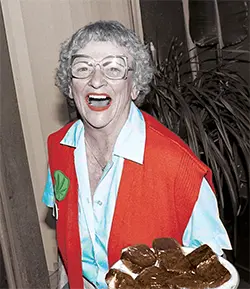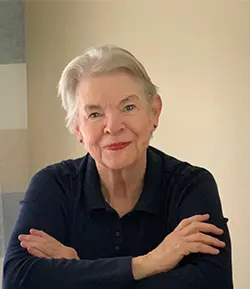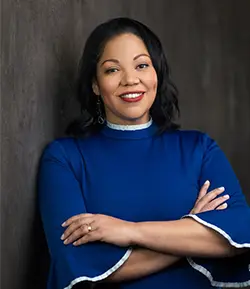In the narrative of medical marijuana (cannabis), the contributions of women have been profound yet often overlooked. Women have played pivotal roles in shaping the understanding, acceptance, and utilization of cannabis for medicinal purposes. Let’s celebrate the contributions of these pioneering women that helped us get to where we are at today.
Advocacy: Brownie Mary

Photo @ Maureen Hurley
Mary Jane Rathbun, known as “Brownie Mary,” made notable contributions to the medical cannabis movement. Dr. Rathbun gained prominence in the 1980s for baking and distributing cannabis-infused brownies to AIDS patients in San Francisco, advocating for the therapeutic benefits of cannabis in alleviating symptoms associated with the disease.
She lobbied for, and helped pass, San Francisco Proposition P (1991) and California Proposition 215 (1996), a California law permitting the use of medical cannabis. Mary Rathbun also contributed to the establishment of the San Francisco Cannabis Buyers Club, the first medical cannabis dispensary in the United States.
Reform: Alice Randall

Photo Credit: Pacific College of Health and Science
The latter half of the 20th century saw a dramatic shift in attitudes towards cannabis, driven in part by grassroots activism and advocacy efforts. Women played integral roles in these movements, organizing campaigns, and lobbying for legislative reform. Figures such as Alice O’Leary Randall, who co-founded the Alliance for Cannabis Therapeutics, were instrumental in challenging the stigma surrounding medical cannabis and advocating for patient rights. Her late husband, Robert C. Randall, was the first person in the U.S. to legally receive medical cannabis to treat glaucoma.
In 1980 she co-founded the Alliance for Cannabis Therapeutics (ACT), the first non-profit organization dedicated solely to resolving the medical marijuana issue.
Scientific Advancements: Dr. Sue Sisley
Researchers like Dr. Sue Sisley have focused their efforts on studying the potential therapeutic effects of cannabis in treating conditions such as PTSD, advocating for increased access to medical cannabis for patients in need.
It is difficult being a trailblazer. “Dr. Sue Sisley has been fired from her job at the University of Arizona; lost a study partner at another university; and had the U.S. Department of Veterans Affairs block her attempts to recruit patients for research.” NBC
She is now “serving as Principal Investigator for the only FDA-approved randomized controlled trial in the world examining safety/efficacy of smoked marijuana flower in combat veterans with severe post traumatic stress disorder PTSD.” CalPoly
Sisley’s ultimate goal is to one day see cannabis flower on the shelf next to conventional pharmaceuticals with an FDA indication. “Our whole mission is trying to get cannabis on the market with an FDA indication for PTSD, pain, or opioid substitution so that finally insurance companies will have to pay for it,” she said.
Entrepreneurship and Innovation: Dr. Chanda Macias

Photo Credit: Women Grow
In 2015, Dr. Macias became the United States’ first Black woman medical cannabis operator as CEO of National Holistic Healing Center (NHHC), a medical marijuana dispensary in Washington, D.C. “In addition, she is also CEO of Ilera Holistic Healthcare, where she helped make history twice in Louisiana with her partnership with Southern University—which became the first HBCU in the country to launch a hemp-based CBD, and then cannabis-based THC products.” Muse by Clio
Read about Dr. Macais here.
Looking Ahead
Despite the progress made, women in the cannabis industry continue to face challenges ranging from gender bias and unequal access to funding to regulatory barriers and stigma. However, these challenges have also sparked resilience and innovation within the community, driving efforts to create a more inclusive and equitable industry.
As medical cannabis continues to gain acceptance and recognition as a legitimate therapeutic option, the role of women in its history and future cannot be overstated. Women have been at the forefront of advocating for the medicinal properties of cannabis and ensuring access for those in need.



